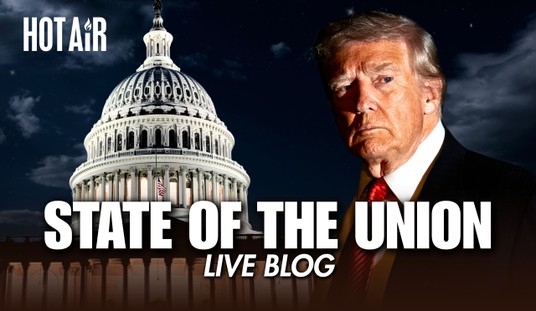While this was entirely predictable, the media pushback on President Trump’s announcement of the death of Abu Bakr al-Baghdadi has really been something to see. It was already starting on cable news yesterday morning before the President had even finished taking questions about how the ISIS leader died like a dog, but deep-diving think pieces quickly began to follow in all the usual outlets. Even the Associated Press got in on the action in this piece from Eric Tucker and Robert Burns.
Eliminating the Islamic State’s elusive leader gives President Donald Trump a new argument for leaving Syria, but the U.S. military campaign against the extremists is far from finished.
The killing of Abu Bakr al-Baghdadi by U.S. forces leaves the Islamic State without an obvious leader, a major setback for an organization that in March was forced by American troops and Kurdish forces out of the last portion of its self-declared “caliphate,” which once spanned a swath of Iraq and Syria.
But the militant group, which arose from the remnants of al-Qaida in Iraq after that group’s defeat by U.S.-led forces in 2008, has ambitions to regenerate yet again. And it remains a dangerous threat in Iraq, Afghanistan and beyond.
At a moment when most of the western world should have been (and largely was) celebrating the slaying of a monster, our mainstream press was tripping over themselves to seemingly minimize the achievement by our armed forces. And the truly bizarre part of all this was that Trump defied the expectations of his detractors and really never even took credit for the success. He thanked the military and nearly everyone else under the sun for pulling off the feat. But the bottom line for many was the fact that ISIS is still out there.
More than a few of us have been saying this since the news broke. We live in an era of asymmetrical warfare when it comes to terrorist groups and everyone knows it. Killing Baghdadi doesn’t immediately eliminate the entirety of ISIS and their ideology any more than putting a couple of rounds through bin Laden’s head pulled the plug on al Qaeda. But just as with OBL, that doesn’t mean it wasn’t significant or worth doing.
There is, however, one significant difference between bin Laden and Baghdadi. Or more correctly, there’s a significant difference between their strategies and goals. OBL always advocated fighting from the shadows, trying to spread terror by striking unexpectedly against any available targets. I’m not saying that ISIS doesn’t encourage their “inspired” acolytes around the world to do the same. They certainly do. But Baghdadi and the main army of ISIS wanted a lot more.
For a time, when the terror group was really on a roll, they basically fulfilled their dream of taking and holding enough land to establish their own caliphate. Let’s not forget that ISIS was openly processing and selling oil on the black market. They were printing and circulating their own currency. They controlled entire cities and towns, along with all the territory between them, stretching across portions of both Syria and Iraq.
For at least a brief time, ISIS had what was, for all practical purposes, their own country. That was Baghdadi’s dream and the magnet that drew so many Islamic extremists to travel across the world and join him. He planned to hold that land until the end days, defying the west and all civilized nations. That was never OBL’s game plan. And destroying the caliphate (which we have done) was the real blow to ISIS. They’ve now been relegated to the same tactics that AQ employs and are arguably a smaller player now.
So it’s true that chasing Baghdadi into a hole and watching him blow himself up (along with three of his children) won’t spell the absolute end of ISIS. But it was the capstone on the effort to destroy his underlying dream and show that the civilized world will not allow such a massive terrorist wound to openly fester on the face of the planet. And it was worth the risk our military took to do so.








Join the conversation as a VIP Member